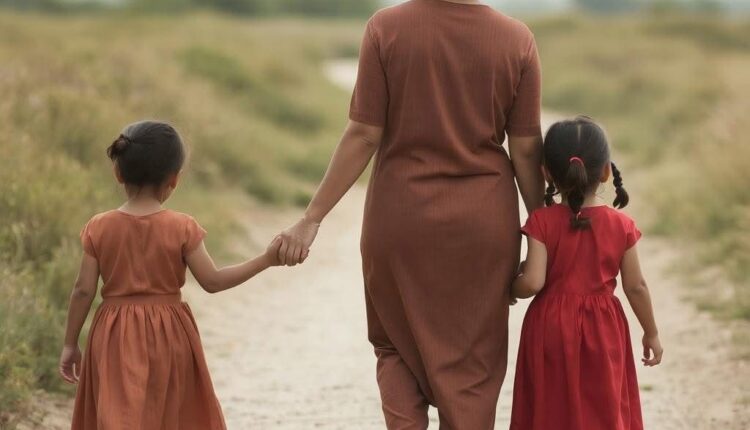Family Disputes Emerging as Major Cause of Mental Health Issues Among Children in JK
Experts call for urgent mental health support and family counselling
Sheeba Haji
Srinagar: July 30: The rising number of family disputes and domestic conflicts across Jammu and Kashmir is taking a worrying toll on the mental health of children and adolescents, with experts warning of deep, long-lasting psychological impacts if the trend continues unchecked.
Personal testimonies from affected children and their families reveal a disturbing pattern of emotional trauma, academic disruption, and mental health deterioration due to prolonged exposure to familial strife—particularly in cases involving marital discord and neglect.
Heeba, a young student from North Kashmir, recounted her traumatic childhood shaped by a bitter family conflict. “My childhood was filled with court cases and fights,” she said. “My father married twice. His second wife has three children, while my mother has two daughters. After the second marriage, fights between my parents became a constant part of our lives. My mother eventually left and went to live with her parents.”
Heeba’s family struggle escalated into prolonged legal battles, compounding the emotional strain. “We went to court, but the hearings dragged on endlessly. My parents eventually reconciled, but it didn’t last. Fights resumed, and so did the court cases. For over a year, we were mentally disturbed. Our education suffered, and I had to skip college classes just to attend court proceedings.”
The emotional trauma, she said, was overwhelming. “There were times I questioned my own existence. I prayed to Allah to end my life. Children shouldn’t have to suffer because of their parents’ issues — but we do. It destroys our childhood and our future.”
Despite a court order directing Heeba’s father to provide ₹3,000 monthly for his daughters’ upkeep, he allegedly failed to do so consistently. “He never bothered about our food, clothes, or even our names. It’s only because of our mother that we survived. She never let us feel deprived.”
Another woman, Shabnum (name changed), also from Bandipora, shared a similar ordeal. “My husband remarried and started a second family. I have two daughters and earn just ₹5,000 a month. I have to play both mother and father to them. If I am not strong, they will be shattered.”
Shabnum, who is determined to raise her daughters despite limited means, said, “I don’t dream for myself anymore. My only goal is to see my daughters succeed. They are studying in college, and I try to meet all their needs. I’ve never let them feel they lacked anything, even if it meant personal sacrifices.”
She also spoke of the emotional burden inflicted by social stigma. “People judge me for being a single mother. Even visiting my maternal home feels uncomfortable because of gossip. The mental strain is unbearable at times.”
Mental health professionals say such testimonies are not isolated. Dr. Aadil Hussain, a clinical psychologist based in Srinagar, said, “A significant number of children we see in therapy are from broken or conflict-ridden homes. Exposure to constant arguments, neglect, or emotional abandonment can result in anxiety, depression, and even suicidal ideation in children.”
He stressed the urgent need for institutional support. “J&K lacks a comprehensive child and adolescent mental health policy. We need school-based counsellors, accessible family therapy services, and awareness programs to destigmatize mental health care.”
Sociologist Prof. Rukhsana Rasool echoed these concerns, highlighting how patriarchal norms and lack of community support exacerbate the suffering of women and children caught in family disputes. “Many women are forced to stay silent or struggle alone because of fear of societal judgment. The emotional fallout affects the children the most.”
With rising reports of mental health issues among minors in Jammu and Kashmir, experts are urging the administration to treat the issue as a public health priority. They recommend establishing family counselling centres at district hospitals, integrating mental health services into school curriculums, and launching campaigns to spread awareness on the psychological consequences of domestic discord.
The stories of Heeba and Shabnum are just two among many that reflect the silent mental health crisis unfolding behind closed doors in the Valley. Unless addressed with sensitivity and urgency, the next generation may be forced to carry the invisible scars of today’s unresolved family conflicts.


Comments are closed.